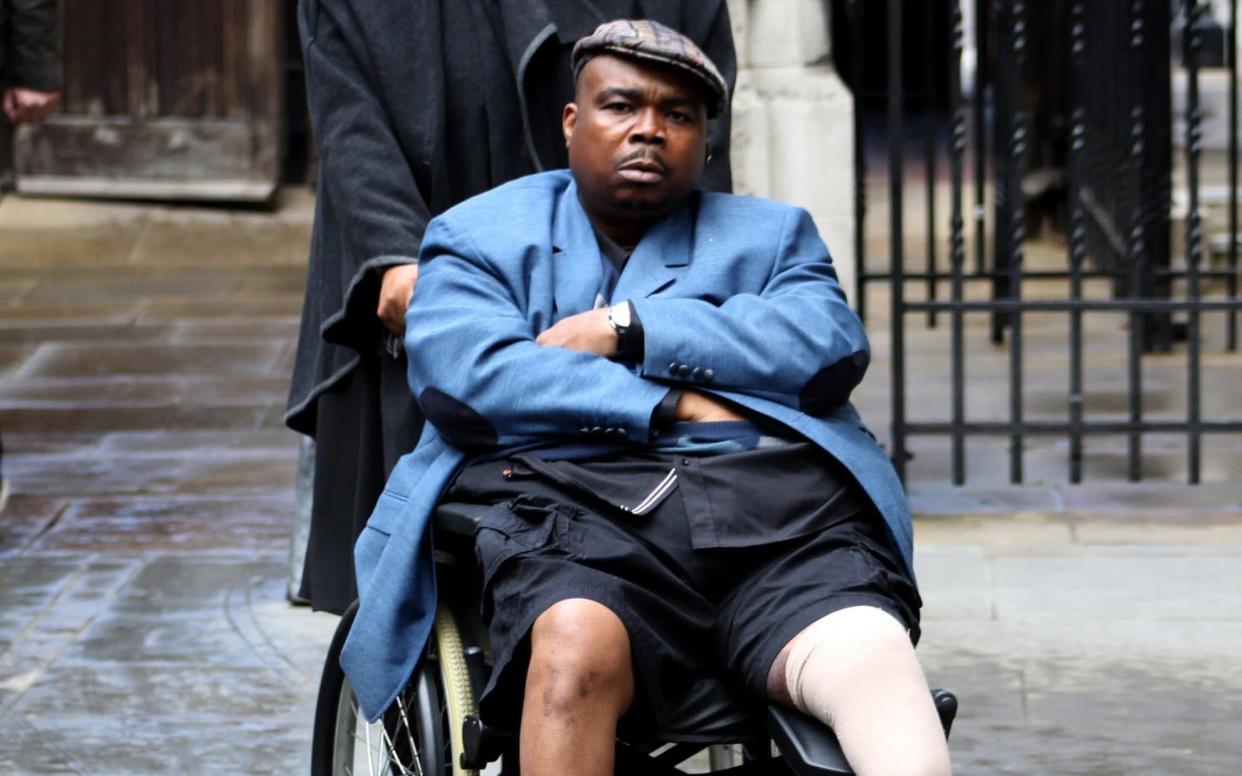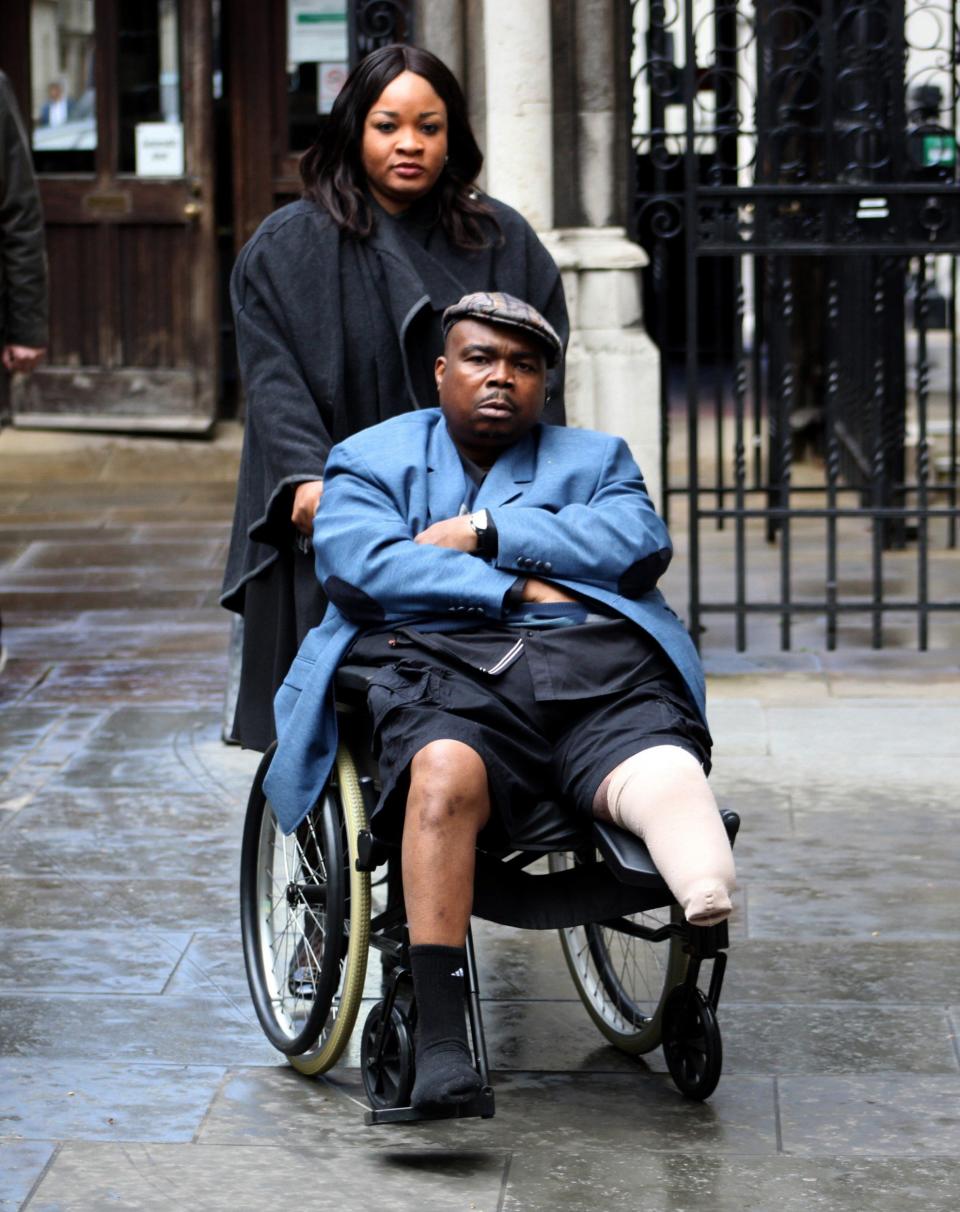Flesh-eating bug amputee who 'slipped through A&E net' to receive over £1m in damages

A father who lost a leg and fingers to a flesh-eating bug after he was "lost in the system" at a busy NHS hospital has won the right to million-pound damages.
A judge condemned a series of “system failures” after Ibiyinka Macaulay, 58, was left waiting in agony in an A&E department for six hours without anyone taking blood samples.
He eventually walked out, thinking he needed no further treatment, but deteriorated and the following night had to be rushed in an ambulance for life-saving surgery.
The father-of-three, from Croydon, had contracted flesh-eating necrotising fasciitis in his pelvis and had to have the amputations due to septic shock.
High Court judge Mr Justice Foskett said the “system” at Croydon's Mayday Hospital was to blame as he ruled that Mr Macaulay is entitled to more then £1m in damages.
There had been a "general lack of urgency" in dealing with Mr Macaulay when he went to the hospital in pain on the morning of October 13, 2011, he said.
Blood tests had not been carried out when they should have been and, when they were ordered later in the day and not done, they were not chased up, he added.
It meant Mr Macaulay was left sitting in pain in the A&E department for six hours, while vital time which should have been used treating him was lost.

The judge said it was not a case of one medic alone being negligent, but a “system failure” in allowing him to sit around “for the best part of a day” in A&E without having the tests which would have identified the infection.
"The general impression one gains is that he had 'slipped through the net' by the time he was beginning to question whether he should remain in the hospital or ask his wife to come to collect him," said the judge.
"He seems to have been lost in the system at an important time.
"Had the system operated properly, clear evidence of the existence of an infective process should have been available ... before he decided to leave."
Although he accepted that A&E departments like that at Mayday are "usually very busy", the judge said there was no convincing evidence that staff were under particular pressure that day.
He ruled Croydon Health Services NHS Trust liable to pay damages, but exonerated GP, Dr Abdul Karim, who Mr Macaulay claimed should have referred him to hospital following an earlier consultation.
During the High Court damages trial in April and May, the judge heard Mr Macaulay had begun suffering with "flu-like symptoms" a few days earlier, but it turned into severe pain.
By the time the infection was spotted, it was rampant, he had gone into septic shock and he was close to death after he was taken back to the hospital by ambulance, said barrister Simeon Maskrey QC.
Emergency surgery at Kings College Hospital on October 15 saved his life, but his extremities could not be saved.
During the hearing, Mr Maskrey argued that staff at the Mayday Hospital should have ensured Mr Macauley's blood was taken and tested on October 13.
He should not have been left waiting for six hours, unsure of what was happening, and it should have been made absolutely clear to him that tests were required.
If his blood had been taken and analysed, he would not have gone into septic shock and lost his left leg, right toes and right fingers and thumb, said the QC.
Lawyers for the NHS Trust said tests had been requested by a doctor, but Mr Macaulay left A&E before they could be carried out.
But the judge said Mr Macaulay had been left waiting uncomfortable and in pain for six hours and it had not been made clear enough to him he needed tests.
The evidence in court suggested that either he was not called to give a specimen or his absence when called was not noted, said the judge.
"Each of these alternatives would represent a 'system failure'," he added.
When staff realised he had left without his blood being taken, they could easily have called him and explained he needed to come back, said the judge.
Had Mr Macaulay received "proper care and attention" at the hospital on October 13, "he would not have suffered the amputations", the judge ruled.
"I consider it more probable than not that surgery carried out in the morning of 14 October would have been successful and would have avoided any of the amputations," he said.
The judge said Mr Macaulay, who appeared in court in a wheelchair pushed by his wife Victoria, had been left "plainly significantly disabled".
He added: "It is right to acknowledge that he appears to remain a very cheerful character who does not look for sympathy."
The amount of damages which Mr Macaulay will receive has not yet been assessed, but lawyers previously estimated the value of the claim at over £1m.
The judge rejected the claim that the GP, Dr Karim, was negligent in not referring Mr Macaulay to hospital during an earlier consultation.

 Yahoo News
Yahoo News 
